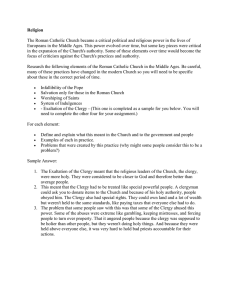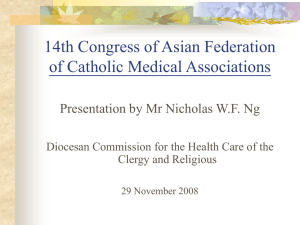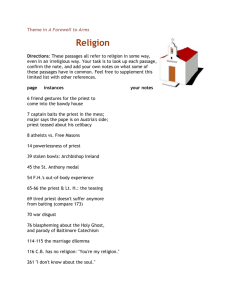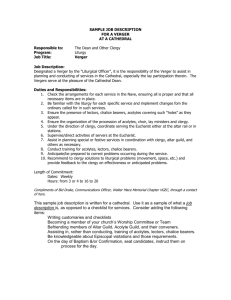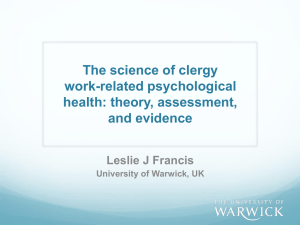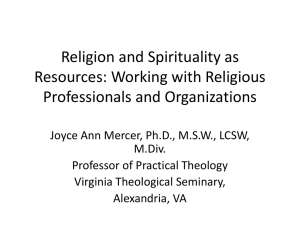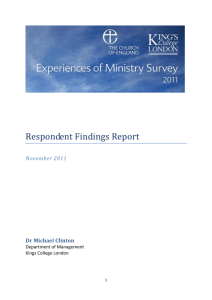The Cracked Pot Yvonne Warren
advertisement
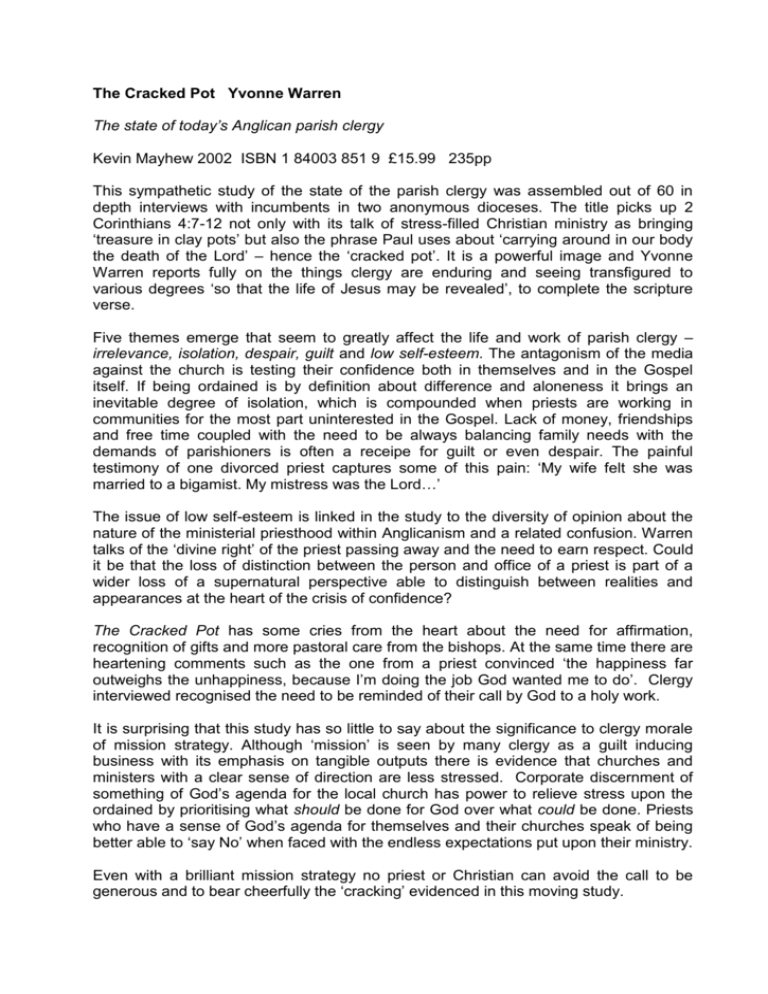
The Cracked Pot Yvonne Warren The state of today’s Anglican parish clergy Kevin Mayhew 2002 ISBN 1 84003 851 9 £15.99 235pp This sympathetic study of the state of the parish clergy was assembled out of 60 in depth interviews with incumbents in two anonymous dioceses. The title picks up 2 Corinthians 4:7-12 not only with its talk of stress-filled Christian ministry as bringing ‘treasure in clay pots’ but also the phrase Paul uses about ‘carrying around in our body the death of the Lord’ – hence the ‘cracked pot’. It is a powerful image and Yvonne Warren reports fully on the things clergy are enduring and seeing transfigured to various degrees ‘so that the life of Jesus may be revealed’, to complete the scripture verse. Five themes emerge that seem to greatly affect the life and work of parish clergy – irrelevance, isolation, despair, guilt and low self-esteem. The antagonism of the media against the church is testing their confidence both in themselves and in the Gospel itself. If being ordained is by definition about difference and aloneness it brings an inevitable degree of isolation, which is compounded when priests are working in communities for the most part uninterested in the Gospel. Lack of money, friendships and free time coupled with the need to be always balancing family needs with the demands of parishioners is often a receipe for guilt or even despair. The painful testimony of one divorced priest captures some of this pain: ‘My wife felt she was married to a bigamist. My mistress was the Lord…’ The issue of low self-esteem is linked in the study to the diversity of opinion about the nature of the ministerial priesthood within Anglicanism and a related confusion. Warren talks of the ‘divine right’ of the priest passing away and the need to earn respect. Could it be that the loss of distinction between the person and office of a priest is part of a wider loss of a supernatural perspective able to distinguish between realities and appearances at the heart of the crisis of confidence? The Cracked Pot has some cries from the heart about the need for affirmation, recognition of gifts and more pastoral care from the bishops. At the same time there are heartening comments such as the one from a priest convinced ‘the happiness far outweighs the unhappiness, because I’m doing the job God wanted me to do’. Clergy interviewed recognised the need to be reminded of their call by God to a holy work. It is surprising that this study has so little to say about the significance to clergy morale of mission strategy. Although ‘mission’ is seen by many clergy as a guilt inducing business with its emphasis on tangible outputs there is evidence that churches and ministers with a clear sense of direction are less stressed. Corporate discernment of something of God’s agenda for the local church has power to relieve stress upon the ordained by prioritising what should be done for God over what could be done. Priests who have a sense of God’s agenda for themselves and their churches speak of being better able to ‘say No’ when faced with the endless expectations put upon their ministry. Even with a brilliant mission strategy no priest or Christian can avoid the call to be generous and to bear cheerfully the ‘cracking’ evidenced in this moving study.

